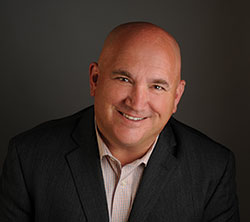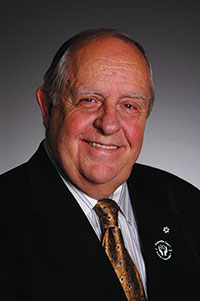Between November 1995 and June 1996, 109 Haitian children inexplicably developed acute renal failure, hepatitis and pancreatitis, leading to coma and death. Of the 87 youngsters who remained in Haiti for medical care, 85 of them died. Eleven were transported to the United States for intensive care; of these, three perished. A multi-national Acute Renal Investigation Team looked into the outbreak and discovered that the youngsters had developed the deadly symptoms after ingesting acetaminophen syrup. Further probing linked the fever and pain medication to glycerin, a raw material imported to Haiti that was used in the acetaminophen formulation. It was, investigators discovered, contaminated with 24 percent diethylene glycol, a common industrial compound that has been implicated in a number of previous mass poisonings around the world.

The extent of the tragedy, and the work of the investigators, were detailed in an April 15, 1998 article in JAMA titled “Epidemic of Pediatric Deaths From Acute Renal Failure Caused by Diethylene Glycol Poisoning.” The team’s final recommendation was simple but profound, “Good manufacturing practice regulations should be used by all pharmaceutical manufacturers to prevent such tragedies.” (The U.S. Food and Drug Administration eventually determined that the supposedly pharmaceutical-grade glycerine was made and contaminated in China.)
The loss of life should never have happened. “If proper supply chain procedures had been followed, those deaths could have been avoided,” says Bernard West a member of the International Union of Pure and Applied Chemistry’s Committee on Chemistry and Industry (IUPAC). “The incident demonstrates the importance of continued efforts to implement safety procedures not just locally but internationally.” West should know. He, along with numerous Canadian chemical industry leaders, oversaw the pioneering work that led to the development of Responsible Care, a comprehensive set of chemical safety standards and practices that have been adopted in more than 60 countries.

Bob Masterson
Bob Masterson, CEO of the Chemistry Industry Association of Canada (CIAC) since 2015, has been heavily involved with the Responsible Care file over the years, leading the enactment of updated principles and guidelines that members adhere to. “The standards are voluntary but they exceed legislative provisions currently in force,” says Masterson. “Our members decided early that they would rather do too much than too little.”
Progress has been substantial, particularly in transparency, a key driver of public trust, Masterson says. CIAC members, for example, report data and advances related to all stages of the chemical usage process, from research through to disposal. Measuring advances in key metrics such as toxic and greenhouse gas emissions as well as air and water quality is a critical first step in identifying areas that need attention.
According to the CIAC’s Responsible Care Progress Report 2014, member emissions fell by 88 percent to 31,000 tonnes by 2012 from 260,000 tonnes in 1992. That wasn’t all. Discharges into water were cut by 98 percent and emissions of toxins targeted by the Canadian Environmental Protection Act fell by 89 percent. Chemical industry workplaces are also now healthier and safer than ever before — accidents are down by more than 70 percent during that same period.
Bhopal and the Mississauga Miracle
If there was one tragedy that indicated the need for enforceable international standards on environmental safety and disaster preparedness it was the Bhopal, India gas leak. The world’s worst industrial disaster occurred in December 1984 when more than 40 tons of methyl isocyanate and other poisonous gases were released at a Union Carbide India Ltd. insecticide plant. Nearly 4,000 people died and many thousands more were injured or suffered premature death. Union Carbide, which tried to dissociate itself from legal responsibility, was accused of neglect regarding safety, training and maintenance.
West says that forerunners of the CIAC had initiated several attempts to set out guiding principles governing chemical use, dating back to the 1970s. One of the near-disasters highlighting the need for better disaster preparedness in Canada was the Mississauga, Ont. Canadian Pacific train derailment in 1979. The cars, which were carrying styrene, toluene, propane, caustic soda and chlorine, derailed at the intersection of Mavis Road and Dundas Street. Dubbed the Mississauga Miracle because no one died, the event was a wakeup call to industry leaders, local communities and governments, who realized that there was little clarity about who was in charge of safety and other issues relating to the incident.
As a result, the Canadian government sponsored a panel of 13 industry experts to oversee production of a report addressing safety issues. This led to the drafting of the six initial codes that would form the Guiding Principles of Responsible Care. These six codes (which have since then been boiled down to three) dealt with chemical research and development, transportation, distribution, waste management and community awareness and emergency management.
International buy-in is key

Jean Belanger
Jean Bélanger, HFCIC, who collaborated with West on the case study book, argues that international acceptance of the process is crucial. Global supply chains are increasingly interdependent and “that makes them more vulnerable,” says Bélanger, whose actions as president of the CIAC between 1978 and 1996 (which during that time was known as the Canadian Chemical Producers Association) earned him the title of Father of Responsible Care. “If standards are weak in one country, it threatens progress made in all the others.”
Canada, through its pioneering work in the field, led the internationalization process. For example, Bélanger was asked to brief Union Carbide’s head office staff about advances made in Canada during the company’s internal review process following the incident in Bhopal. A major milestone was met when the United States chemical industry adopted Responsible Care guidelines in 1988, because many of the largest chemical companies are headquartered there.
American companies extended the Responsible Care policies throughout their global subsidiaries, a process that vastly multiplied the impact of the initial commitment. Bélanger’s briefing to Union Carbide officials soon led to a slew of international presentations and conferences in Europe, Japan, the United Kingdom and around the world. Bélanger’s tireless efforts, which continue today, eventually won him an Order of Canada and led to his nomination to the United Nations Environment Program Global 500 Roll of Honour.
Actions on the ground matter
According to Richard Paton, past CIAC president and adjunct professor in the Master of Public Policy and Administration program at Carleton University, there are several reasons why Responsible Care has had such an impact. Many of these relate to the methodologies through which the process has permeated sector workflows. “Responsible Care is the chemistry industry’s continuing commitment to the betterment of society, the environment and the economy through the production of safer and sustainable products and services,” Paton says. “The fact that the industry does this openly and with involvement by local and national communities adds considerable credibility to the process.”
A key step in that process was the institution of independent verification processes in 1988 by small groups that generally included a person with industry experience, an independent expert and a community representative. “We were asking CEOs to sign commitments to adhere to Responsible Care guidelines but many were wondering how they could be sure that these were being followed throughout the companies they led,” says Paton. “Independent verification gave them that assurance.” Incorporation of provisions related to sustainability into the Responsible Care guidelines, a process that Paton facilitated during the years between 2008 and 2010, was another key step in building public credibility.
Responsible Care as a corporate philosophy
Dave Emerson, president of Canada Colors & Chemicals (CCC), agrees that public credibility is crucial. “Our growth over the past years has been built in large part based on our Responsible Care philosophy,” says Emerson, a CIAC board member. “For us these are not just rules and procedures that we adhere to. They form an integral part of how we do business.”
CCC, a full-service provider of more than 5,000 commodity, specialty and ingredient products, and a compounder of plastics and manufacturer of sulphuric acid and sodium bisulfite, has a broad window into the range of needs and demands of major players across the sector. It also provides Emerson, who has been with the company since 1980 and has been its president since 2004, unique, on-the-ground knowledge of almost all aspects of chemical products production, distribution and use.
A CCC representative was part of the original committee to establish Responsible Care in Canada. The company was the also the first to be externally verified in 1992 for its adherence to Responsible Care practices, a process that all CIAC members now undergo every three years. “People in our community appreciate our efforts, especially younger employees,” says Emerson. “They all want to work for a company committed to sustainability and social responsibility.”
Continued growth opportunities
Decades after making their initial commitments to the Responsible Care process, the initial builders remain dedicated to supporting future actions and ensuring that stakeholders increase their commitment to guidelines while improving their understanding of how it relates to their business or facilities. Although Responsible Care has been active for more than 25 years, “it is not well understood, even in broader chemical associations such as IUPAC, academia, many chemical societies and certainly not by the public,” says West. Nonetheless, it’s a good story to tell, one that the Canadian chemical sector should be proud to share more broadly with colleagues around the world.
